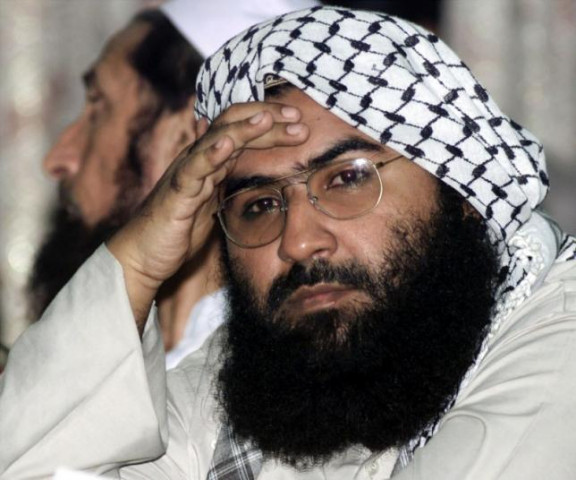The Pathankot inquiry
Team investigating Pathankot attack has reported it can find no linkage to suggest Masood Azhar had ordered the attack

Maulana Masood Azhar, head of Jaish-e-Mohammad, in Islamabad on August 26, 2001. PHOTO: REUTERS

The report goes on to say that “low cadre members” of the JeM may have been involved but that does not deliver sufficient clarity to satisfy the Indian side nor indeed should Pakistan be satisfied either. There is no paucity of evidence as to the origins of the attack, and if the Indians have intercepts of phone conversations made while it was in progress, then it is up to them to share it. For its part, Pakistan needs to be a lot more proactive in addressing the problem of extremism and not only in Punjab.
Where all of this leaves the peace process is unclear. Neither side has gone down the well-trodden road of finger-pointing and re-running the blame game, a welcome development in itself. Both sides, at least via their respective leaders, have said they remain committed to the developing dialogues at the foreign secretary level. Equally unclear is the fate and future of Azhar, currently in what is described as ‘protective custody’. If there is no evidence against him, even though he heads a banned organisation, the justification for holding him may be considered by some quarters to have weakened. Yet releasing him is unlikely to play well with India as well as the US, the UK, Japan and France, all of whom have had a hand, quite possibly a heavy hand, in pressuring Pakistan to wield a bigger stick in the direction of extremist organisations. What India and Pakistan need to do is to keep talking, because if they do not, they are handing a win to their enemies.
Published in The Express Tribune, February 9th, 2016.
Like Opinion & Editorial on Facebook, follow @ETOpEd on Twitter to receive all updates on all our daily pieces.













COMMENTS
Comments are moderated and generally will be posted if they are on-topic and not abusive.
For more information, please see our Comments FAQ